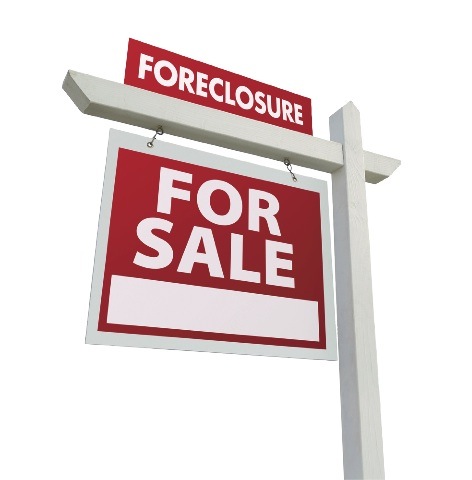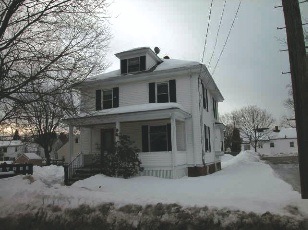EDITOR’S NOTE: Following is the second of a two-part series on home foreclosures. Last week, experts weighed in on how homeowners can avoid foreclosure and where to turn for help. This week: What you need to know if you’re interested in buying a foreclosed property.
Stefan Keenan has been auctioning off foreclosed properties for more than 25 years, and he thinks that right now, there are definitely some bargains out there.
“There are good deals out there, some of the best in 10 years, probably discounts of 10 to 30 percent and more on commercial properties,” he said.
But he’s also quick to caution that buying a foreclosed property is not for everyone. It often involves more risk and a lot more research and homework than buying other properties.
“If you’re the high bidder at an auction, you have 30 days to pay the balance or lose your deposit,” said Keenan, of Keenan Auction Co. in South Portland. “So before you make that bid, you better find out as much as you can about liens, taxes, the condition of the property, outstanding water and sewer bills. You should really contact an attorney to help you through all that.”
Keenan Auction is handling about 300 foreclosure auctions a year right now, and probably half of those are residential properties. Maine is not seeing as many foreclosures as much of the country during the current foreclosure crisis, but certainly more than in many years.
The relative abundance of foreclosed homes on the real estate market might seem tempting. Newspaper ads and websites list foreclosed properties being sold or auctioned throughout the state.
Because of the risk and potential work involved, buying a foreclosed property may be better suited for an investor than for a family looking for a home to move into. Then again, it’s probably still worth looking into a foreclosed property as your primary home.
For many people, buying a foreclosed property is a new experience. So the big question is, where do you start?
KNOW WHAT YOU CAN AFFORD
Some people think that because foreclosed properties are sold at auctions — often with only a fraction of the selling price required as a deposit — you don’t need to have your total financing in place.
But just like with any real estate purchase, it’s best to know what you can afford and what a bank will lend you before making any offers.
In fact, it’s probably more important, because you will only have a limited amount of time to pay off your purchase if you are the high bidder.
“You really should begin your process by talking to a lender, telling them what you’re interested in doing,” said Chris Pinkham, president of the Maine Bankers Association. “Find out now what you can afford and what you can borrow. You don’t want to wait until you only have 30 days to put the financing together.”
One important thing to keep in mind, Pinkham said, is that a foreclosed property may be assessed at a very low value by a town — especially if it’s abandoned or in poor condition — but its selling price at auction will probably be a lot closer to what comparable properties have sold for.
“And right now, that’s a moving target,” said Pinkham.
Another important aspect of buying a foreclosure is the home inspection. While most home inspections are pretty routine, the inspection of a foreclosed property may find all sorts of problems with the property.
“One bank had a property where the residents had taken the trim from the home and burned it in the wood stove for heat,” said Pinkham.
Keenan has seen many foreclosed properties in “distressed” or bad shape when they go to auction.
WHERE TO LOOK
Just searching on the Internet for foreclosed properties will give you a good idea of ones for sale in your area. Also, Keenan says, foreclosures have to be advertised in the legal section of a newspaper. A Realtor working for you — as a buyer’s broker — can help you find foreclosed properties as well.
So there are many places to find at least a basic description of a property. Auction companies like Keenan’s also have detailed information on the properties they handle.
“If we’re handling an auction, we can let you go through the property and send you a package of information including tax maps, zoning information and other pertinent information,” said Keenan. “But sometimes you have to gather that information yourself.”
Sometimes you can investigate a foreclosed property by searching for the address online and finding information from the last time it was sold. That may tell you things like how big it is, how old, how many rooms it has, and what recent improvements have been made.
Working with a Realtor who has handled foreclosure sales can be helpful, as they will know where to look for information.
But once you find a property you might want to make a bid on, you need to do some legal digging. Or ideally, have a title company or attorney help you dig.
WHERE MIGHT THE PAPER TRAIL LEAD?
Some of the potential problems in buying a foreclosure include liens on the property, back taxes owed, or foreclosures that were not done properly or timely enough and therefore might not be valid.
The best way — sometimes the only way — to detect such problems is to do a title search. Some people might try this on their own by going to the registry of deeds and looking up the title and associated documents. But most people should hire a title specialist.
“Our clients are real estate brokers, loan officers, lenders, and what we do is help determine who owns the property, what liens if any are on the property and whether the foreclosure was done properly,” said Jan Guimont, an owner of Atlantic Coast Title Co. in South Portland. “Under Maine foreclosure law, there are a lot of rules to follow.”
Keenan points out that liens and other outstanding real estate bills could become the responsibility of a buyer.
And Guimont thinks people should consider that buying a foreclosed property is inherently more complex, because you are working with your own lender, plus you are buying from a lender — the lender who foreclosed on the property.
Still, for some, buying a foreclosed property may be the right thing to do.
“We see a healthy mix of investors and families who are looking for affordable sweat equity,” said Guimont, whose company also handles real estate closings. “I think in addition to having enthusiasm for the house, it’s important (in buying a foreclosed home) to have a lot of patience.”
Staff Writer Ray Routhier can be contacted at 791-6454 or at:
rrouthier@pressherald.com
Send questions/comments to the editors.





Success. Please wait for the page to reload. If the page does not reload within 5 seconds, please refresh the page.
Enter your email and password to access comments.
Hi, to comment on stories you must . This profile is in addition to your subscription and website login.
Already have a commenting profile? .
Invalid username/password.
Please check your email to confirm and complete your registration.
Only subscribers are eligible to post comments. Please subscribe or login first for digital access. Here’s why.
Use the form below to reset your password. When you've submitted your account email, we will send an email with a reset code.